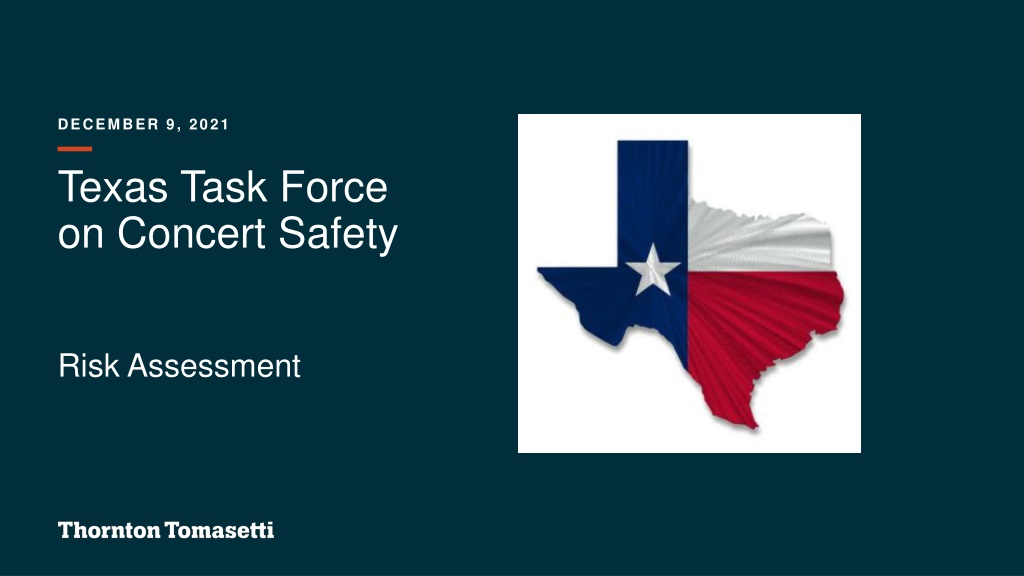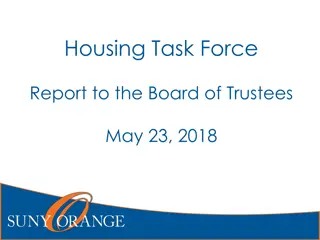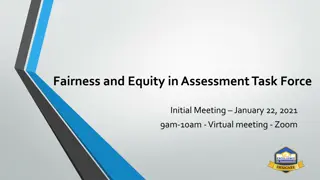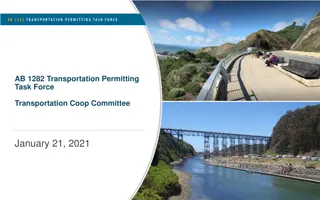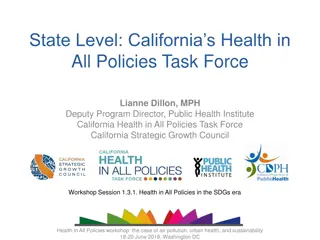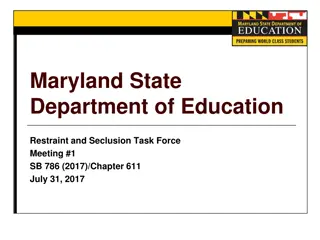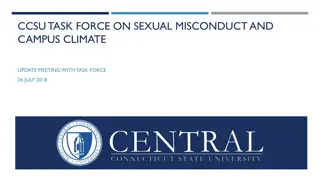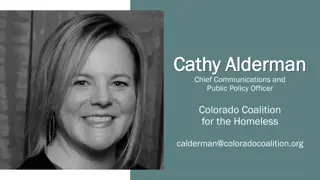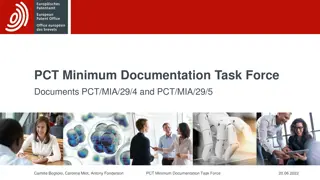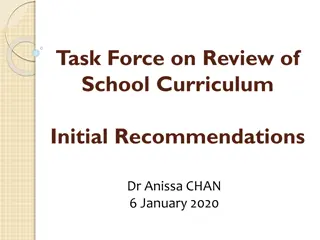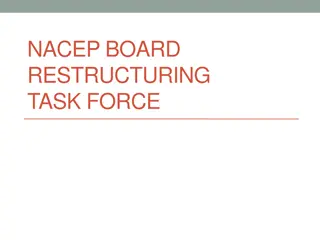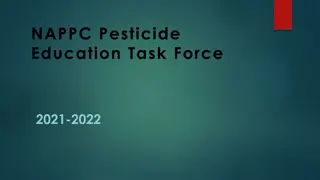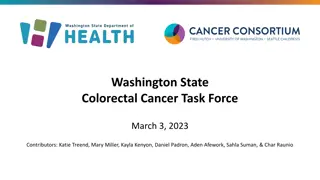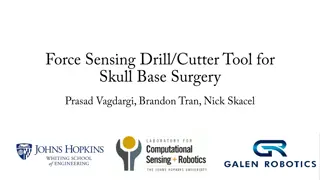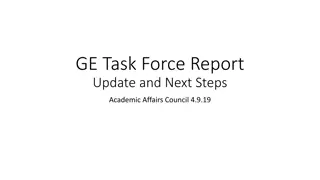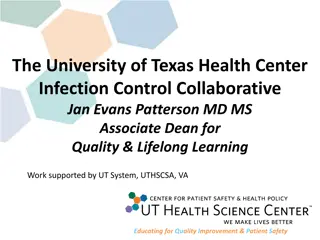Risk Assessment and Safety Recommendations for Texas Task Force on Concerts
Darrell Utt, a seasoned security lead with 25 years of experience, outlines the importance of risk assessment in evaluating threats and hazards to ensure the safety of property and attendees at events. The agenda covers key aspects such as primary references, the Texas Mass Gatherings Act, and actionable recommendations for enhancing event safety and security. The focus is on identifying, prioritizing, and managing risks effectively to mitigate potential adverse impacts on businesses and projects.
Download Presentation

Please find below an Image/Link to download the presentation.
The content on the website is provided AS IS for your information and personal use only. It may not be sold, licensed, or shared on other websites without obtaining consent from the author. Download presentation by click this link. If you encounter any issues during the download, it is possible that the publisher has removed the file from their server.
E N D
Presentation Transcript
DECEMBER 9, 2021 Texas Task Force on Concert Safety Risk Assessment
DARRELL UTT, CPP, PSP Operational Security Lead 25-years experience, former U.S. Special Forces (Green Berets) B.S. Criminal Justice, Excelsior College M.S. Intelligence Studies, American Public University Former Director of Security and Director of Operations Board-Certified in Security Management and designated as a Certified Protection Professional (CPP) and Physical Security Professional (PSP) Expertise in Risk Assessment, High-Angle Attack Assessment (H3A), Emergency Management and Planning 2
AGENDA 1. Risk Assessment 2. Primary References and Resources 3. Texas Mass Gatherings Act 4. Recommendations
RISK ASSESSMENT Description Identifies threats/hazards and overall risk to property and invited guests and staff Prioritizes threats/hazards and control measures Determines if existing control measures are adequate or if more should be done Enables clients to assess the probability that an adverse event may negatively impact a business, event, and/or project 4
RISK ASSESSMENT Primary References and Resources 5
RISK ASSESSMENT Primary References Proven methodology Structured, consistent, data-driven and fact- based approach Improves resiliency to threats and hazards Industry Standards and best practices 6
RISK ASSESSMENT Primary Resource Recommends conducting a risk assessment Planning for the reasonably foreseeable risks and hazards associated with an event is even more difficult and essential to the event s success. Before scheduling an event, the organizer should consider the scope of the event, the risks to spectators and participants, community impact, and the emergency support required (personnel and logistics). Effective planning is concerned with hazard identification and the mitigation or elimination of those hazards to reduce or eliminate risks. 7
RISK ASSESSMENT Primary Resource Recommends conducting a risk assessment While planning an event, it is important to consider every possible risk and hazard that may occur. The responsibilities for dealing with these risks vary with each jurisdiction, and every community needs to have a plan listing who or what organization will respond to the anticipated risks or hazards. Included in this Manual is a detailed 69 page Pre-Event Planning Matrix that may prove helpful to the Task Force (Appendix A) 8
RISK ASSESSMENT Primary Resource Recommends conducting a risk assessment Each outdoor venue should conduct its own risk assessment and tailor its plans according to the risk at its facility. Operators of outdoor venues that attract large crowds are responsible for assessing their specific vulnerabilities and practicing the best and most cost- effective mitigation strategies for their own unique security needs. 9
RISK ASSESSMENT Primary Resource Recommends conducting a risk assessment 10
RISK ASSESSMENT Primary Resource Recommends conducting a risk assessment Early in the major special event planning process, law enforcement needs to conduct a comprehensive threat and risk assessment regarding the special event in order to plan for possible situations. Assign responsibility for the assessment to an experienced and qualified assessor. In smaller events, this may be a one-person assignment. For major events, the executive team may ask each subcommittee to conduct its own assessment in its area of responsibility. 11
RISK ASSESSMENT Primary Resource Critically important resource NFPA 101, Life Safety Code, is the most widely referenced source for occupant safety strategies based on construction, protection, and occupancy features in all stages of a building life cycle. NFPA covers everything from means of egress and features of fire protection to hazardous materials emergencies, injuries from falls, and emergency communications. The 2021 edition is the resource for getting up to date and compliant with critical life safety requirements. 12
TEXAS MASS GATHERINGS ACT Primary Statutes Defines Mass Gathering(s) Identifies Mass Gathering Rules and Regulations 9 page document 13
RECOMMENDATIONS AND DISCUSSION 1. Consider making the Risk Assessment part of the Application Procedure for the Texas Mass Gatherings Act (consistent state-wide approach to events) 2. Consider listing available references and resources for venues to utilize to complete their Risk Assessments and other Plans (to include Appendix A: Pre-Event Planning Matrix from the FEMA Special Events Contingency Planning Manual) as an Appendix to the Texas Mass Gatherings Act 3. Collect further input from the Task Force to further strengthen the Texas Mass Gatherings Act 4. Utilize existing Best Practices from the National Center for Spectator Sports Safety and Security (NCS4) Intercollegiate Athletics Safety and Security Best Practices and incorporate into the Task Force on Concert Safety Recommendations 5. Recommend that every venue accommodating more than 500 persons be required to have a Certified Crowd Manager on staff (crowd training provided through the International Fire Chiefs Association (IFCA)) 6. Address crowd management strategies as part of the Application Procedure for the Texas Mass Gatherings Act 7. Collect further input and data from the Task Force on Festival Seating 8. Develop a Texas Best Practice Guideline Document for Outdoor Concerts
THANK YOU Darrell Utt 940.315.4006 DUtt@ThorntonTomasetti.com ThorntonTomasetti.com www.linkedin.com/in/darrell-utt
